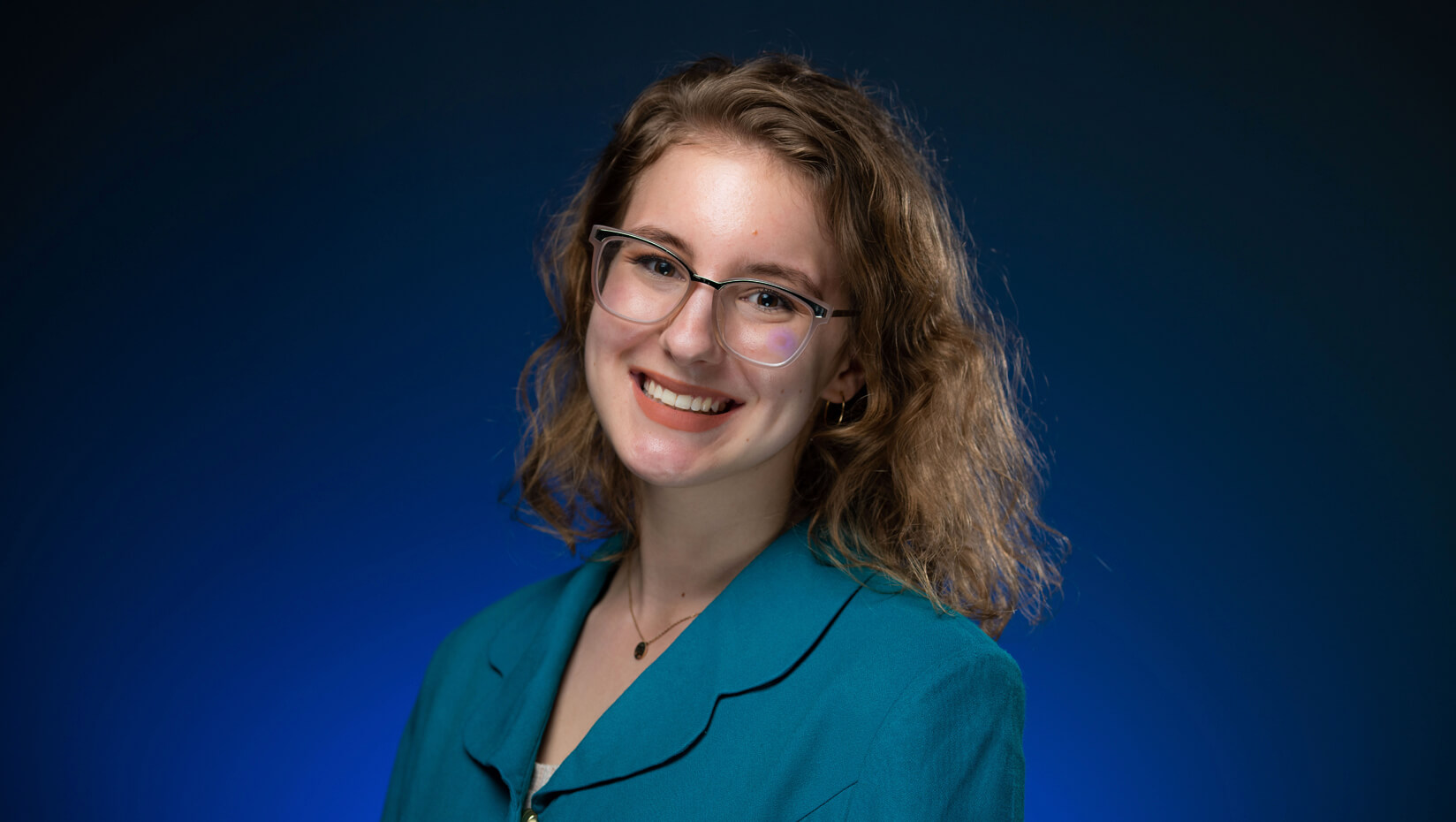
Miranda Snyder: Outstanding Graduating Student
Miranda Snyder of Brimfield, Massachusetts is the Outstanding Graduating Student in the College of Education and Human Development. The secondary education major with a concentration in English received highest honors for her thesis completed in December, “How Alumnae of a Middle and High School Feminist Organizations Perceive Their Involvement Related to Their Academic Self-Concept.” Snyder was awarded a Center for Undergraduate Research Summer Fellowship and received the Thomas E. Lynch Honors Thesis Scholarship. Last year, she also collaborated with professor Rebecca Buchanan on multicultural teacher education programs. Snyder is president of All Maine Women, co-chair of Feminist Collective, a Fogler Library student ambassador, and a member of Hip Hop Club, Black Bear Mentors and Eating Disorder/Body Positivity/Body Liberation Advocacy/Activism. She did her student teaching at Hermon and Bangor high schools. Snyder plans to be a high school English language arts teacher.
What difference has UMaine made in your life and in helping you reach your goals?
The support and encouragement by the faculty and staff, and breadth of extracurricular, professional and academic activities at UMaine has shown me how my various interests and skills can merge for meaningful outcomes.
Have you had an experience at UMaine that has changed or shaped the way you see the world?
Participating in and later organizing and hosting the annual “Take Back the Night” speak-out and march for survivors of sexual assault and harassment first introduced me to the power of personal experience, then solidified my passion for activism and education in storytelling modes. In the annual event, survivors voluntarily share their experiences in a non-mandatory-reporting space. The swelling sense of communal support from fellow survivors and allies at the event laid the foundation for my current and future storytelling-based advocacy, since I firmly believe that one’s experiences hold immense potential for education and change.
Why UMaine?
The University of Maine simply “clicked” for me during my first campus visit in 2017. My family and I indeed were greeted with a “Hearty Maine Hello” in our entrance on campus, and the same feelings of welcome, warmth and openness have only continued to show in the past four years as an undergraduate. The abundance of opportunities ranging from arts to research in individual and communal efforts has expanded my understanding of what issues of interest can intersect and in what modes and contexts. Since my first entrance onto campus, the spirit of a “Maine Hello” has backed my academic, professional and extracurricular endeavors. This spirit is present in the Advising Center at the College of Education and Human development, the outpouring of community spirit and service at Maine Day, and in the countless efforts of various student leaders on campus.
How would you define the opportunities for student success at UMaine?
UMaine has a host of opportunities for student success. As also referenced in my advice to incoming students, there is an abundance of professional and academic resources to be tapped into according to one’s interests and skills if they are to be sought out and tapped into. As mentioned before, the Advising Center at the College of Education and Human Development has been particularly helpful in not only providing support and suggestions for academic and professional inquiries, but also in creating a general collaborative air that carries throughout the college as a whole. Additionally, the college’s tapping into associate professors who are current teachers in the field to teach education-based courses has been immensely helpful for my early entry into the education profession. Working with and learning from these professionals throughout the development of my general praxis and principles for teaching has allowed my teaching to be adaptable, inventive and collaborative.
Have you worked closely with a professor or mentor who made your UMaine experience better?
Conducting and co-authoring qualitative research alongside professor Rebecca Buchanan has demonstrated the ability for partnership in professional and academic endeavors. As I have grown to increasingly value my own critical insight as a researcher and educator, I have only better appreciated and sought out more opportunities for professional collaboration on a host of topics, whether it be executing a service project at a student teaching placement or asking for ample resources on a topic of interest. Executing my honors thesis under professor Susan Gardner was a similarly encouraging experience, since the model of professional, intentional and reflexive praxis in her work and mere mentorship provided a strong foundation of support for me to succeed on.
What advice do you have for incoming students to help them get off to the best start academically?
My first and foremost tidbit of advice is to take stock of one’s strengths and interests, then locate resources on campus that align with these areas. For instance, the Advising Center at the College of Education and Human Development was essential to me crafting my academic course load to support my various academic interests, running from courses in Women’s, Gender, and Sexuality Studies to independent research opportunities such as the honors thesis. Advocating for oneself is essential to success in and out of the college classroom.
Contact: Margaret Nagle, nagle@maine.edu
